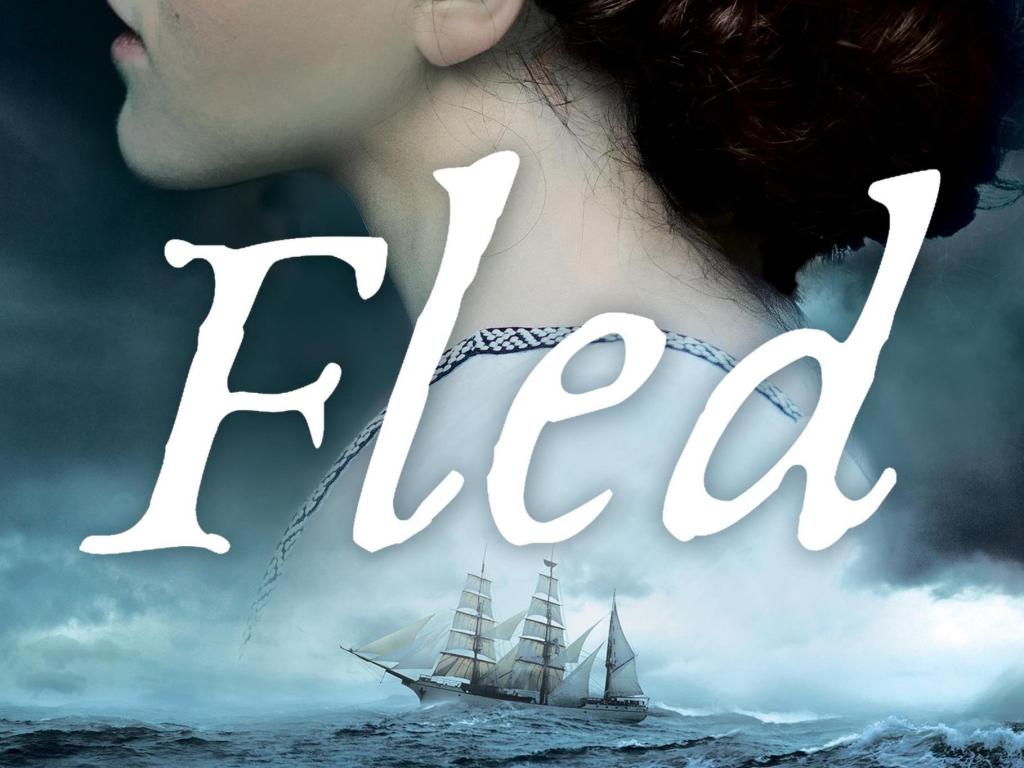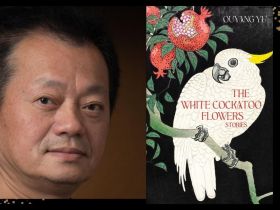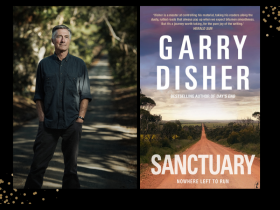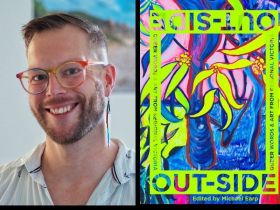Meg Keneally’s Fled.
Fled is a historical novel whose heroine, Jenny Gwyn (née Trelawney), is based on Mary Bryant. Meg Keneally has joined the large group of writers fascinated by the epic voyage Bryant made in escaping from the convict colony at Botany Bay in 1791. It took Bryant and her companions 66 days in a stolen open boat to row and sail from Botany Bay for about 5,000 kilometers to the Dutch city of Kupang in West Timor – a feat of survival that attracted favourable public attention at that time and has remained of interest ever since.
In an author’s note, Keneally emphasises that Fled is a work of fiction and she has not used Bryant’s name in Fled because she felt it was wrong to ascribe thoughts, emotions and beliefs to Bryant when she could have no idea whether they were actually hers. Such niceties have not deterred authors like Hilary Mantel, but Keneally’s respect for Bryant is nonetheless laudable.
Fled is as historically accurate as good research can make it. The poor conditions for working class people in England, when Jenny was a young girl – about 1775 – are graphically recounted. It left people like Jenny with few means to earn enough money to ward of starvation. That Jenny committed what were at that time hanging offences in order to eat is arguably inevitable. She was lucky to be transported to Australia rather than hanged.
Jenny is illiterate but highly intelligent and strong-willed. She is tough in body and in spirit, resilient and resourceful. She becomes a mother in the stinking hold of the transport ship, the Charlotte, which arrives in Botany Bay on 20 January 1788; Jenny names her daughter after the ship. She is astute enough to realise that her best chance of survival in the new colony is to get married to someone the governor thinks is useful to the community.
There is limited interaction between the white settlers and the Indigenous tribes. Jenny is befriended by an Aboriginal woman who shows her what leaves to chew or to brew into tea to avoid scurvy. An Aboriginal man who has learned English – learning an Indigenous language seems to be beyond the skill, or the will, of the settlers – also helps Mary and her husband. Later, during her voyage, when Mary makes land for water and provisions, she encounters some hostile Aboriginal people.
Keneally recounts the story from Jenny’s point of view. Anyone interested in the history of early white settlement in Australia will find this novel fascinating and will come to admire Mary’s canny handling of difficult situations. It is hardly surprising that Mary comes to the conclusion that she and her family must escape from Botany Bay; there is a chronic shortage of food, decease is rife, and for a woman there are many other dangers.
Much of the action takes place on the water, whether in the Charlotte, other sailing ships, or the cutter in which Mary and her companions make their escape. Keneally’s superb descriptions of their seafaring experiences could only have been written by someone with a deep understanding of life on the water. (Keneally admits to having been a scuba diving instructor and still enjoys being in, or under, the water.)
Fled is an exciting adventure story. That it is based on fact is an extra bonus. The laws of 200 years ago, and the brutality with which they were enforced, seem unthinkable today. Yet we live in a world where there are countries whose laws and behaviour are not that much worse than those in Jenny’s day. It is important to be reminded of that, even while we enjoy this novel.
4 stars ★★★★Fled
By Meg Keneally
RRP: A$29.99
ISBN: 9781760680275
Format: Paperback
Publication date: 15 April 2019
Echo Publishing





